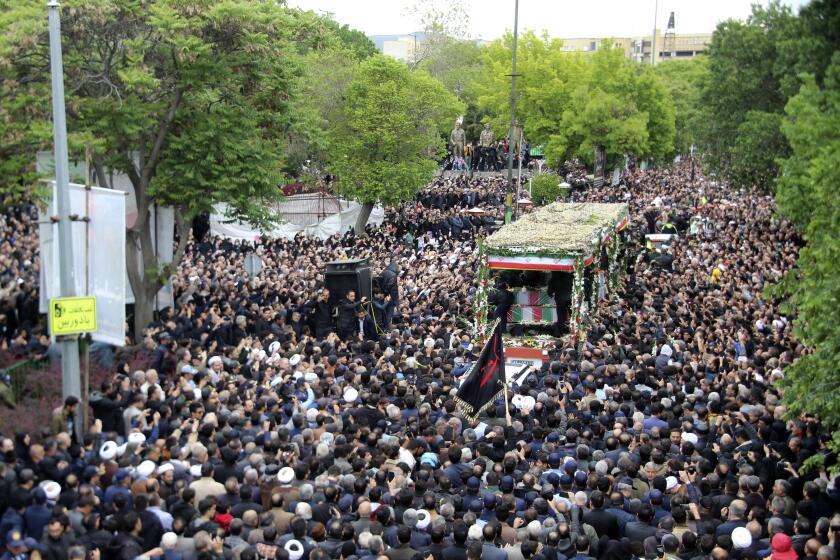Schroeder Touts Economic Gains in Report Card
In fighting form as he heads into an election year, Chancellor Gerhard Schroeder on Thursday trumpeted his accomplishments of the last three years in boosting Germany’s international profile, transforming attitudes toward immigration and improving the economy--even if less dramatically than expected.
A feisty Schroeder gave himself a glowing report card ahead of the government’s summer break, reminding Germans that the country had posted no economic growth for more than a decade before his Social Democrats and the environmentalist Greens took office.
Economists fretting over the expectation that economic growth will slow this year are taking a shortsighted view of the reforms underway in a country that has had to spend $700 billion to lift living standards in the former Communist eastern region, he told a news conference.
Opposition Christian Democratic leader Angela Merkel fired back with accusations that Schroeder has acted more as “the brakeman of the economy” than its engineer. The Christian Social Union, another opposition party, picked up on the report card theme, saying it would give the chancellor an F in the subjects of economics, labor markets and finance.
However, the chancellor exuded confidence about next year’s electoral contest with the scandal-plagued conservatives, calling Bavarian Gov. Edmund Stoiber of the Christian Social Union, likely to be his challenger, “cowardly” for failing to announce his candidacy.
Despite this week’s downward revision of Germany’s annual economic growth expectations to as little as 1%, Schroeder portrayed a country recovering from “the German disease” of coddled labor, stifled competition and over-regulation.
A sweeping tax reform his government enacted last year will put more than $25 billion back in Germans’ pockets. That they aren’t spending their way to an upsurge is more the fault of external pressures such as high oil prices and an uncertain U.S. economic trend, Schroeder argued. He rejected calls from some economists to speed up the staggered tax cuts, saying he was sticking to his “policy of the steady hand.”
Schroeder showed his pro-labor roots, however, in making clear that there was a limit to the structural reforms he will launch.
“We don’t want an American labor market,” he said, referring to what Germans consider brutal hiring and firing practices. “We consider families’ security and predictability the right way to go. This is embedded in the European economic and social tradition.”
His 90-minute assessment focused on economic issues, but the 57-year-old chancellor also took a few bows for bringing the country out of the international shadows. He noted that the German army shouldered its first post-World War II military burden in 1999, taking part in the North Atlantic Treaty Organization’s campaign to halt ethnic cleansing in Yugoslavia’s Kosovo province.
Germany also regained respectability by settling slave labor compensation claims lingering from the Nazi era, Schroeder said, and by changing a controversial citizenship law that for more than a century conferred full rights only on those of German blood.
Expanding German minds on the subject of immigration was an accomplishment that the chancellor said his government shared with “right-minded” opposition members. He singled out Christian Democrat Rita Suessmuth for praise in steering Germans away from knee-jerk fear of any foreign influx.
Suessmuth, who was parliamentary speaker under former Chancellor Helmut Kohl, headed a nonpartisan commission that last week urged Germany to throw open its doors to at least 50,000 immigrants a year.
More to Read
Start your day right
Sign up for Essential California for news, features and recommendations from the L.A. Times and beyond in your inbox six days a week.
You may occasionally receive promotional content from the Los Angeles Times.







